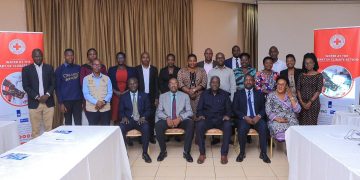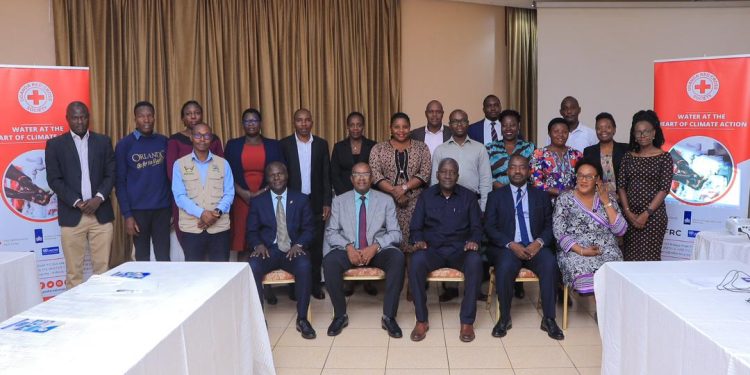In a concerted effort to fortify Uganda’s resilience against the ravages of climate change, key stakeholders convened at an Interministerial meeting for Early Warning for All and Water at the Heart Climate Action initiatives.
Held on Tuesday in Kampala and organized by the Ministry of Water and Environment (MWE) in collaboration with the Uganda Red Cross Society (URCS), the gathering underscored the imperative need for proactive measures to mitigate the country’s vulnerability to natural disasters.
The Permanent Secretary of the Ministry of Water and Environment, speaking at the event, emphasized Uganda’s precarious position as one of the most vulnerable country globally. “When it comes to floods, drought, landslides, and extreme heat, we are truly exposed,” the PS remarked.
He stressed the pivotal role of early warning systems in cushioning communities against disasters by providing timely alerts and actionable information. “We need communication based on data collected through equipment and forecasting to prepare and respond effectively to impending risks,” he added.
Chris Kyagaba, the Uganda Red Cross project manager for Water at the Heart of Climate Action Program, shed light on the regional scope of the initiative. “Funded by the Dutch Ministry of Foreign Affairs, this program spans four countries in the Nile Basin region, with Uganda positioned at the heart of collaboration,” Kyagaba remarked.
He emphasized the necessity of transboundary cooperation to mitigate the far-reaching impacts of climate-induced disasters.
Bob Alex Ogwang, the Acting Executive Director of the Uganda National Meteorological Authority, emphasized the significance of meteorological equipment in early warning systems.
“Observing weather parameters such as temperature, rainfall, and humidity is crucial for issuing timely warnings,” Ogwang stated. He underscored the government’s efforts in acquiring and maintaining such equipment but stressed the need for additional support.
The backdrop of the meeting was the Water at the Heart of Climate Action Programme, launched in December 2023 with funding from the Dutch Ministry of Foreign Affairs. Aimed at addressing the escalating impact of climate change in Uganda and neighboring Nile Basin countries, the initiative seeks to bolster early warning systems and enhance risk-informed early actions.
The Interministerial Meeting served as a platform for collaborative efforts aimed at building resilience and fostering transformative change in Uganda’s response to climate-related challenges









